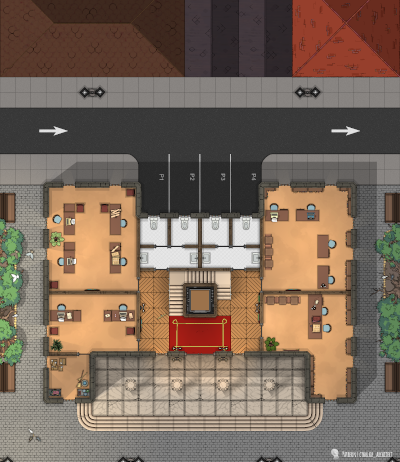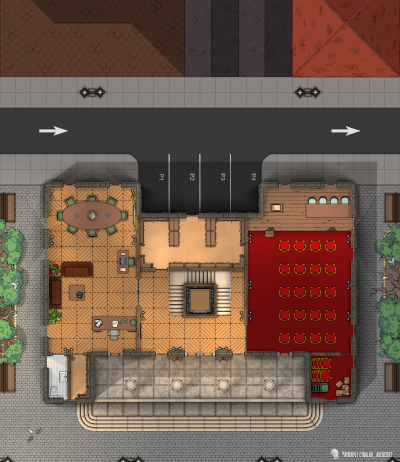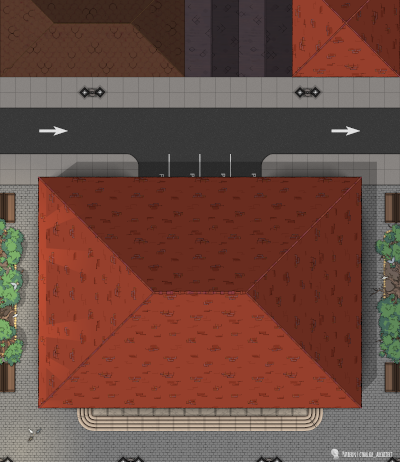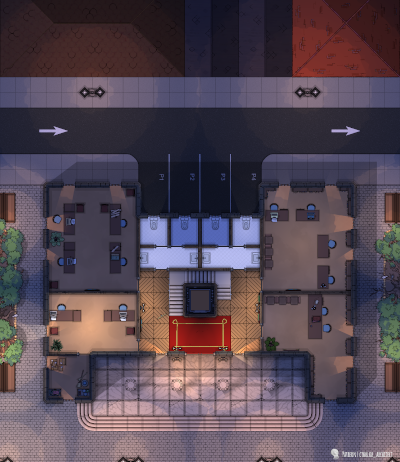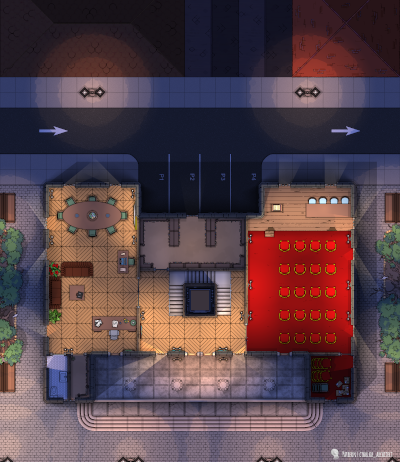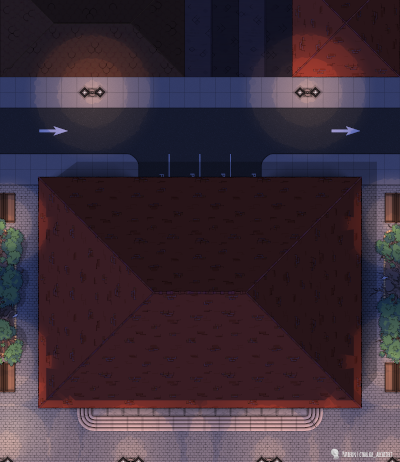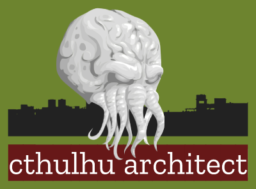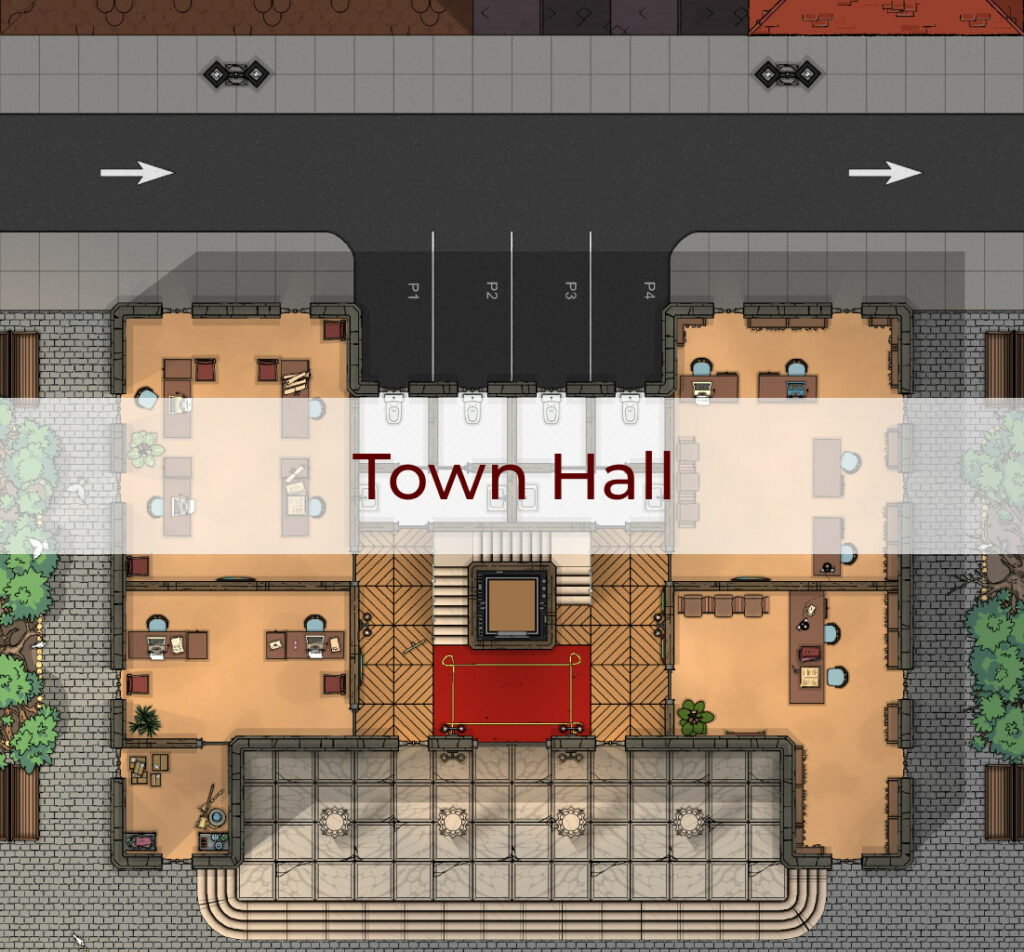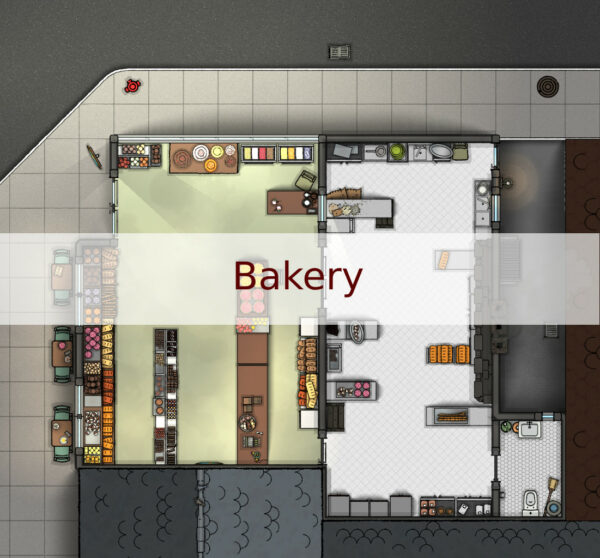The more you approach infinity, the deeper you penetrate terror
― Gustave Flaubert
This is a Town Hall that your investigators can use to find the extra infromation needed to clear out the case. On the ground floor there are many offices for the public servants. On first floor you can find the mayor’s office and an area where meetings occur. On the other side of the first floor you will find a bigger meeting area for public events.
Included in this release you will find:
- grid & gridless maps
- low (70 PPI) & high (140 PPI) resolutions
- day & night variations
- 2-floor building
- dd2vtt files for FoundryVTT & Roll20
- WebP files
- A monthly Foundry Module with all the maps of the month personally curated by me with walls, windows, doors, lights and more.
